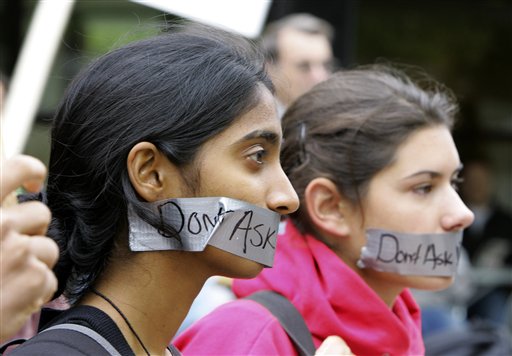The unconstitutional conditions doctrine arises from the Constitution’s prohibition against penalizing an individual for the exercise of a constitutional right. The doctrine holds that the government may not condition the availability of a government benefit on an individual’s agreement to forego the exercise of such a right.
Government contracts cannot restrict First Amendment freedom
The unconstitutional conditions doctrine is encountered most often in cases involving government employment contracts or government grant contracts where an express or implied term in the contract restricts the contractor’s freedom to speak. In such cases, the contractor can seek to invalidate the contractual restriction on speech on the grounds that it is an unconstitutional condition on the availability of the valuable government contract.
However, if a court establishes that a restriction is reasonably necessary for the effective performance of the contract, the unconstitutional conditions doctrine will not apply, and the court will uphold the contractual restriction on speech.
Court: Unconstitutional conditions doctrine does not apply to speech restrictions on CIA employees
A position with the Central Intelligence Agency (a valuable government benefit) is an example of a job that is routinely conditioned on an individual’s acceptance of significant restrictions on the individual’s freedom to speak about classified information to which the individual will have access. Because such speech restrictions are essential to the effective performance of the CIA agent’s employment contract, the Supreme Court decided in Snepp v. United States (1980) that the unconstitutional conditions doctrine does not apply to the speech-restrictive condition in the CIA employment contract.
Similarly, the Court decided in Rust v. Sullivan (1991) that when an individual is employed by the government to engage in family counseling using government-specified speech, the individual contractually agrees to forego the advocacy of his or her own viewpoints during the counseling time for which the government is paying. The unconstitutional conditions doctrine imposes no barrier to such necessary conditions in government contracts.
Government can’t discourage unfavorable speech unrelated to contract performance
In contrast, where a government employment or grant contract imposes a speech restriction that is not related to the effective performance of the contract, the contract condition will be found to be unconstitutional. In effect, the government cannot use a financial incentive to discourage unfavorable speech if said speech is in no way related to the performance of the contract. For example, the Court decided in Elrod v. Burns (1976) that a city government cannot offer employment as a police officer on the condition that the employee refrain from making speeches in his or her spare time that are critical of the mayor’s political views.
It is important to note a direct corollary of the unconstitutional conditions doctrine: If the government can regulate a particular course of conduct without violating the Constitution, then the government may “condition” a grant of benefits on the recipient’s agreement to refrain from said conduct.
Court rejected unconstitutional conditions challenge in law school case
Pursuant to this corollary, the Court in Rumsfeld v. Forum for Academic and Institutional Rights (2006) rejected an unconstitutional conditions challenge to the Solomon Amendment, which withheld federal research grants from any university and its affiliated law school if they refused to host U.S. military recruiters on the same terms as nonmilitary employment recruiters.
In Rumsfeld, a group of university law schools asserted that by banning military recruiters they were expressing their opposition to the military’s policy on homosexuals, and they asserted that this exercise of symbolic speech was protected by the First Amendment. The law schools further argued that in withholding the benefit of university research grants as a penalty for their exercise of free speech, the government was violating the unconstitutional conditions doctrine.
The Court disagreed. In its view, Congress would not have violated the First Amendment if it had directly fined the law schools for their refusal to host military recruiters because the law schools had many other ways to communicate their political views. Thus, the Court held that the unconstitutional conditions doctrine did not prevent Congress from indirectly penalizing the schools for their actions by withholding the benefit of substantial federal research grants.
This article was originally published in 2009. Thomas McCoy is currently Professor of Law Emeritus at Vanderbilt University School of Law. His long career at Vanderbilt has been dedicated to the study and teaching of U.S. Constitutional Law generally, with a special focus on the First Amendment. He served for many years as a consultant to the Freedom Forum’s First Amendment Center in its efforts to promote public understanding of the First Amendment.

